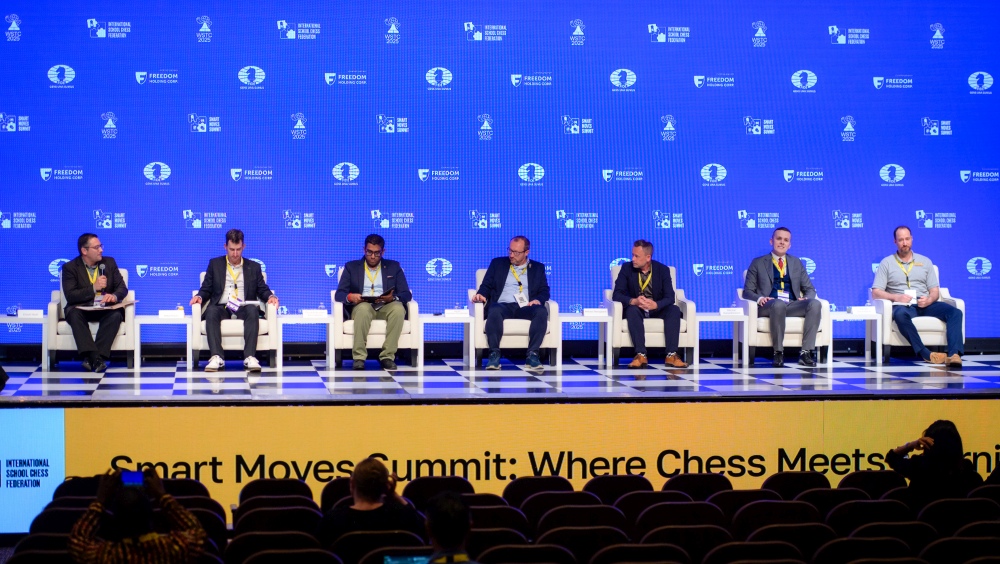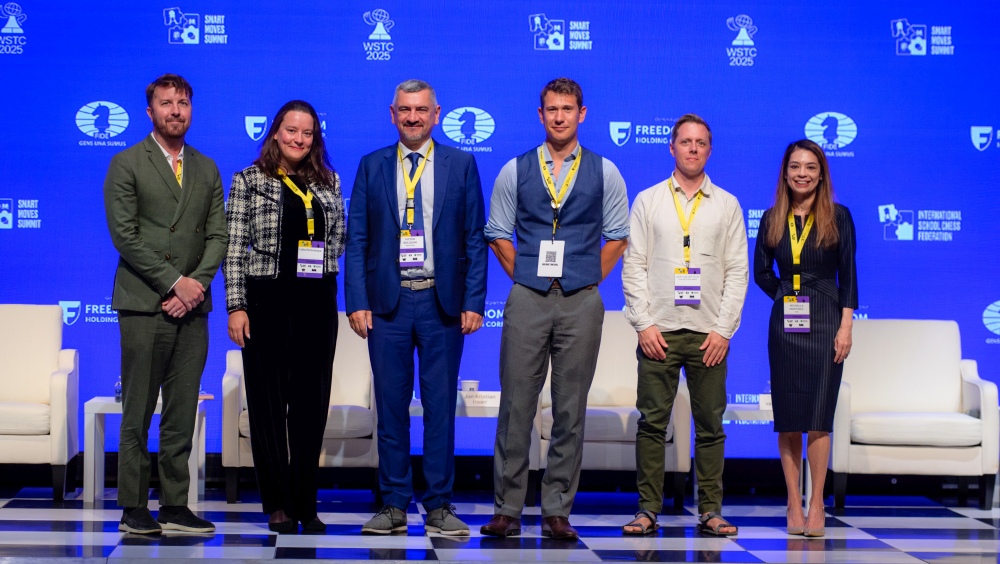
The first-ever global conference on the role of chess in education concluded in Washington D.C. today with a call to governments and education institutions to integrate chess into formal and informal learning environments, including schools.
Over 50 speakers – including eminent scientists and researchers in the fields of education and cognitive studies, educators, coaches, leaders of state and international chess projects, chess-tech entrepreneurs, government officials and influencers – took part in the two-day event aimed at discussing the educational and cognitive benefits of chess.
Organised by FIDE and the International Schools Chess Federation, and sponsored by the NASDAQ-listed Freedom Holding Corporation, the second day of the Smart Moves Summit saw lectures, panel discussions and presentations ranging from real human stories on how chess helped change the lives of people around the world, to building financially viable chess initiatives and private-public partnerships, to how social media is redefining the image of chess.
The conference concluded with a declaration, setting the ground for a global effort to get national and international bodies and institutions to formally recognise and include chess in education and social programmes.
The declaration calls for the integration of chess “into formal and informal learning environments, including public schools, after-school programmes, and digital platforms”.

Steps to be taken include providing teacher training, curriculum framework, and evidence-based support to scale sustainable chess education programs.
The signatories of the declaration have committed themselves to expanding access to chess education in underserved communities, addressing gender disparities and ensuring inclusive practices for children with disabilities, refugees and the displaced.
True stories of chess changing lives
The central panel discussion on the second day of the “Smart Moves Summit” titled “The power of chess to change lives”, offered a compelling look at how the game has transformed the fortunes of people from challenging backgrounds.
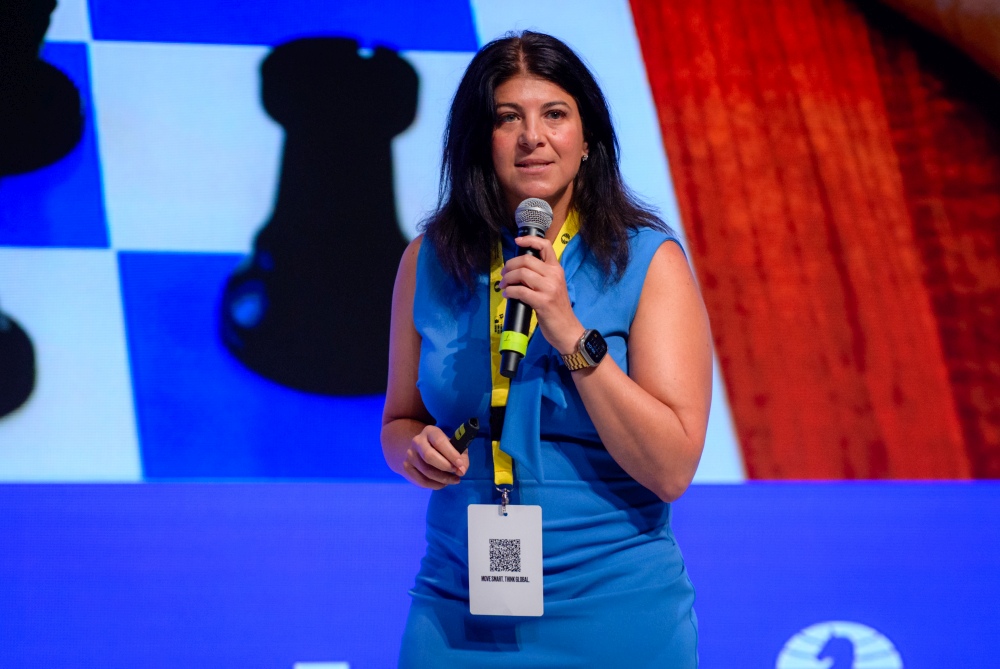
Dr. Jenny D. Ingber, President & CEO of Chess in the Schools (pictured above), opened the session by recounting the journey of a young student named Eva, who went from a curious beginner to a confident competitor and mentor. Ingber emphasised that for many low-income students, chess serves as a “mirror, a ladder, a doorway” to a better future. “Chess does not care where you’re from, how much money your parents make or what language you speak,” Ingber said, “It only asks, can you think ahead?”
Rochelle Ballantyne, a litigation associate and alumna of the Chess in the Schools programme (pictured below), provided her own account of her journey as a low-income Black girl from Brooklyn to a lawyer. She credited her family and Chess in the Schools for her success, while also openly sharing her experiences with racism and exclusion at tournaments. Ballantyne stated that her “pride became a foundation, giving me the strength to push myself in the face of discomfort and adversity.”
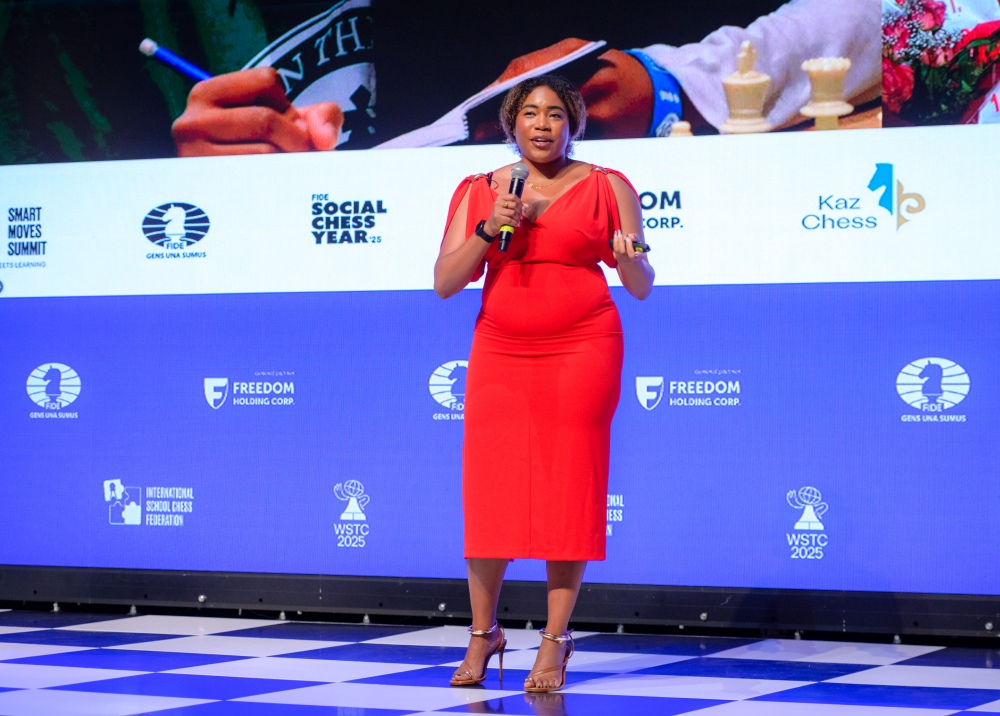
Kwadwo Acheampong, a Senior VP at PIMCO and another program alumnus, spoke about how chess provided him with structure, confidence, and community as a shy immigrant child in the Bronx, and even influenced his career in finance. Acheampong underscored the lesson that “it’s not often the moves you make that are important, but the moves you don’t make”. He concluded by stating that “chess gave me the platform and the confidence to say, ‘I am a leader’”.
A coach and social entrepreneur from Uganda, Robert Katende (pictured below), shared stories of how chess has transformed the lives of youth living in slums and those with disabilities. He detailed the journeys of two people – one who became a national champion and then an engineer, while the other – a disabled player – competed internationally and got to step outside of Uganda thanks to chess.

Katende’s philosophy is centred on producing “life champions” rather than just titled players, explaining, “I may not have produced Grandmasters, but I have produced thousands of life champions”.
David Heiser (pictured below) and Arlecia Taylor from the Renaissance Knights Chess Foundation and Chicago Public Schools, respectively, highlighted their work in Chicago’s underserved communities. Their initiatives, which range from police-student programmes to mentorships for children, focus on inclusion, healing trauma, and creating opportunities. They described chess as a “great equalizer” and a tool that teaches children that “maybe my next move matters.”
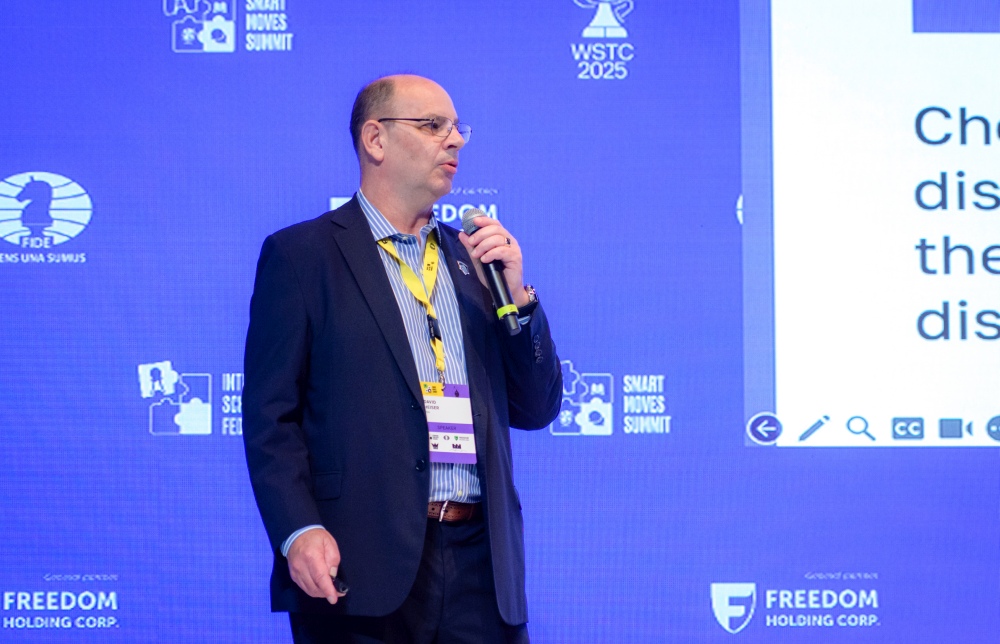
How to better market and present chess to the public and the sponsors
As chess is increasingly being used in education, one of the conversations emerging is how to better market and present chess and its benefits to a wider population. This was the topic of the “Strategic Partnerships: Sponsorship and Marketing at the Crossroads of Chess and Education” at the Smart Moves Summit.
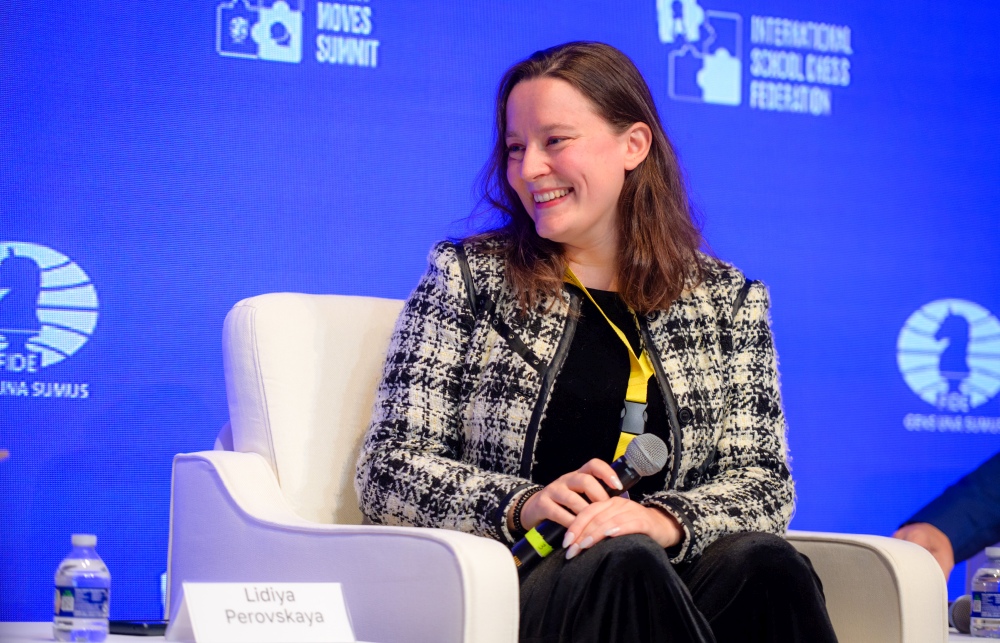
Lidia Perovskaya (pictured above), head of communications for the International Collegiate Programming Contest (ICPC), shared her organisation’s approach to promoting their work. Perovskaya emphasised the importance of the entire community sharing the rewards of the game, so “even if you’re not in the top 10, you would still have plenty of opportunities and become part of the community”. She identified three key categories of partners: academic, corporate, and general brands. She emphasised that partnerships work best when sponsors share the vision of building a community first and foremost. “We are always looking for long-term relationships for meaningful partnerships,” she said, stressing that they seek companies who are “truly invested in a long-term game”. She noted that universities and schools, as academic partners, provide an “instant connection” because they share a core value of seeking talent and ambition in young people.
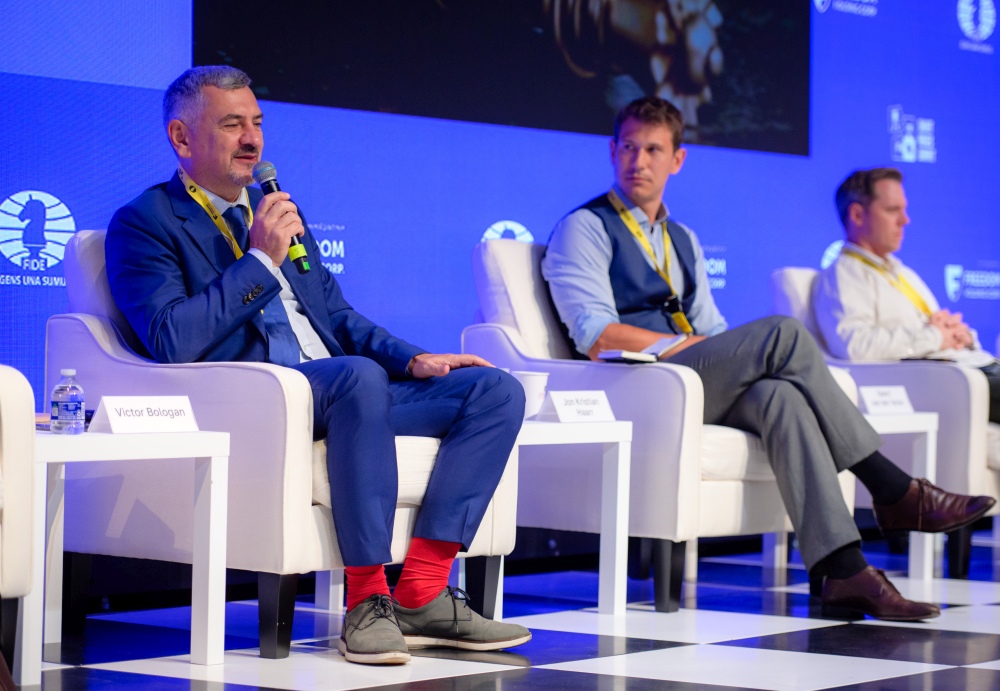
Moldovan Grandmaster and FIDE Executive Director Victor Bologan (pictured above) addressed what he sees as the main problem in modern chess: its fragmentation. He explained that while the chess world has many excellent elements, it lacks a unified ecosystem that brings together online platforms, clubs, organisations, and individuals under one umbrella. To solve this, Bologan is developing Chess ID, a new company aimed at creating a single “window of access” to all chess services for players and partners.
Bologan believes this platform will make chess more organised and accessible. He noted the number of FIDE-registered players is small number compared to the estimated 600-800 million global players. Chess ID aims to help organisations, including FIDE, engage a wider audience by providing tools to build statistics and networks. He also highlighted the potential for AI to be used to optimise the educational and training process for players.
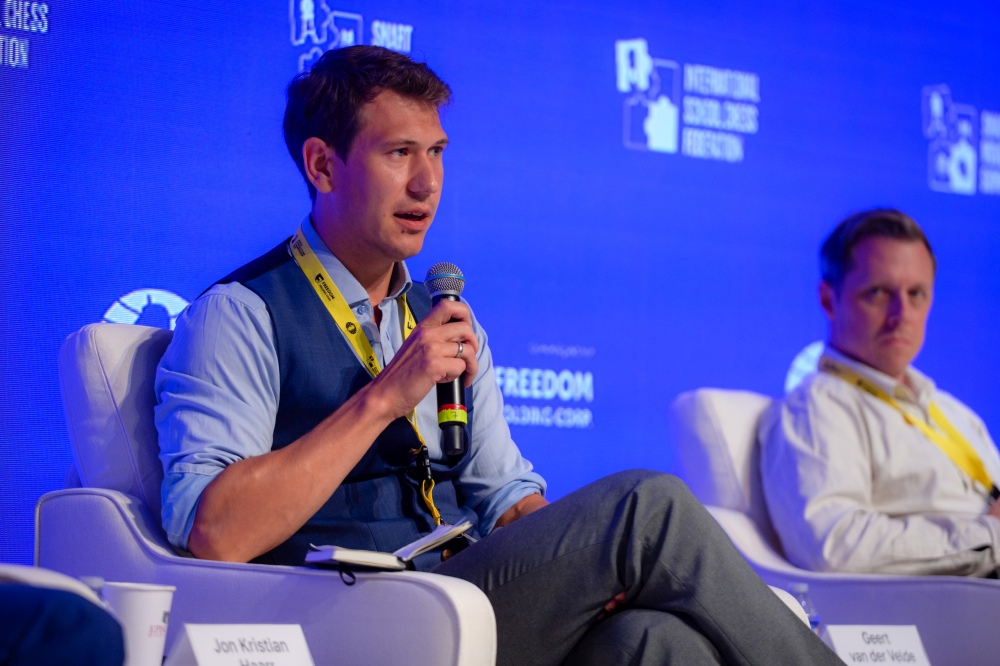
Jon Kristian Haarr, Vice President of the Norwegian Chess Federation (pictured above), discussed how to make chess education “compelling” to brands. He stated that securing funding depends on whether chess is perceived in a positive light. While acknowledging the historical mystery and recent controversies surrounding the game, he noted that events like the Netflix series “The Queen’s Gambit” and the rise of young stars like Gukesh have led to an “unprecedented growth in cultural relevance”.
Haarr argued that to get chess into more schools, the chess community must “sell it properly” by making clearer the arguments in favour of chess. He emphasised the need for better storytelling and clear communication to convince politicians, officials and schools that chess is a worthwhile educational tool.
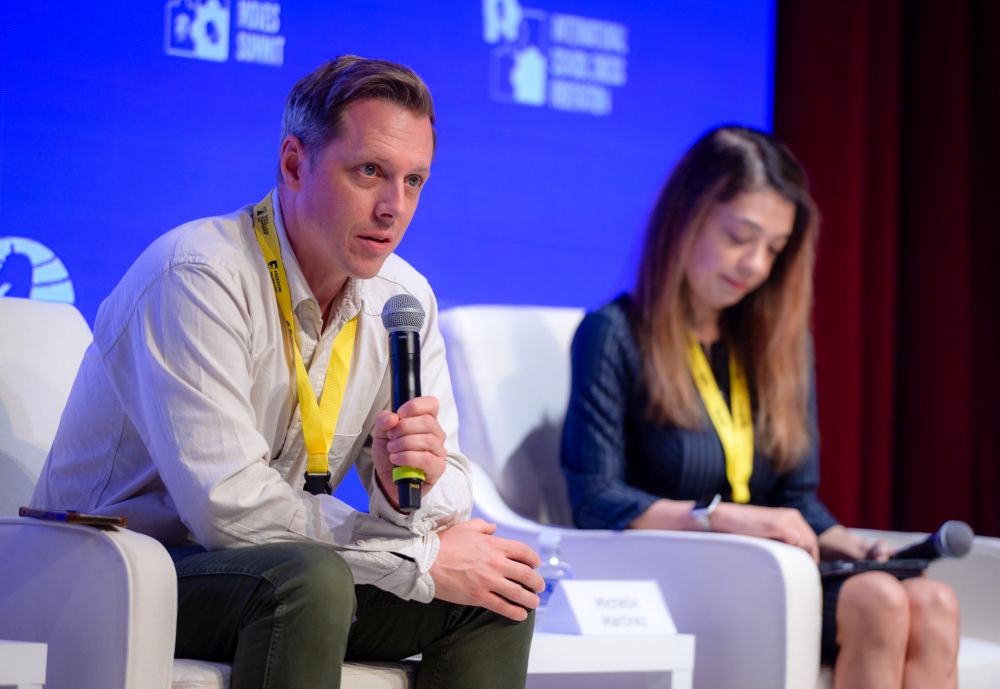
Geert van der Velde, former CEO of Chessable (pictured above), posed a direct message to young players and their parents: the question isn’t “How do I get sponsored?” but “How do I become sponsorable?”. He explained that sponsors are not charities; they are looking for three things in a player: “reach, influence and brand alignment”.
Drawing from his background as a musician, van der Velde explained that musicians build fan bases early, while chess players often only have “followers” who are invested in the game, not the person. In his opinion, it is up to the players to build a community and a personal brand and not hope for a sponsor to emerge. The story of former World Champion Ding Liren’s vulnerability and mental health struggles ahead of his match with Gukesh, he said, made the Chinese GM relatable and likeable to fans, proving that a player’s story can be just as important as their results on the board.
An opportunity for the future
As chess continues to grow, the chance to embed it into everyday life will depend on a clear plan and strategic partnerships. The Smart Moves Summit in Washington D.C. has laid strong foundations for a project that seeks to empower the next generation of players — and position chess as a powerful tool for learning and personal development.


